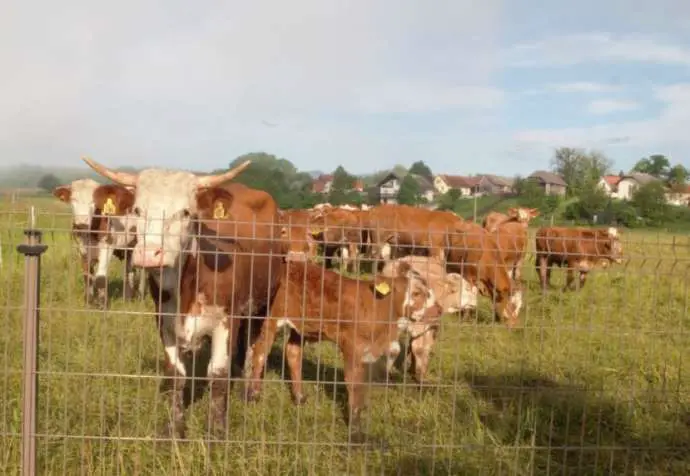STA, 6 October 2021 - Representatives of farmers have warned that the situation in the Slovenian agriculture sector is worrying as inputs are more expensive while the prices of agricultural products are stagnating. The situation is worst in the production of livestock and milk.
"The situation in which agriculture has found itself in is seriously worrying," Janez Pirc, the director of the Chamber of Agriculture and Forestry (KGZS) told the press on Wednesday as he presented an analysis statistical data.
In addition to energy, the prices of inputs have increased significantly since the summer, with the prices of seed increasing on average by 39%, of fertilisers by 24%, of pesticides by 22%, and of fodder by 38%.
The buy-in prices did increase in plant production, but only marginally, while the yield was considerably lower due to frost, hail and drought, which means that revenue of farms is lower and does not enable investments in future production.
According to Pirc, the situation is even worse in livestock production, where the prices of key products (milk, beef, pork, poultry) have been practically stagnating for the last few years, while the prices of inputs have increased.
"These data show that the relationships in the farm-to-fork chain are not fair," added KGZS president Roman Žveglič, noting that farmers would not be able to invest in farms given such buy-in prices.
They will not be able to invest in upgrading machinery or in meeting the standards society expects from them, in particular in terms of animal welfare and environmental standards.
Žveglič stressed that farmers needed much more development funds, noting that EUR 123 million had been approved in the 2014-2020 rural development programme for higher productivity and technological development, with applications worth a total of EUR 70 million being rejected.
Under the strategic plan for the common agricultural policy for 2023-2027, EUR 60 million is expected to be available for this purpose. "This is too little, farms will stagnate," he assessed.
The chamber has estimated that an additional EUR 380 million would have to be earmarked for the 2023-2027 period, with part of these funds to be allocated for investments, agriculture in less favoured areas, environmental payments, and animal welfare.
The KGZS will coordinate requests for additional payments with other relevant organisations next week and send them to the government.






